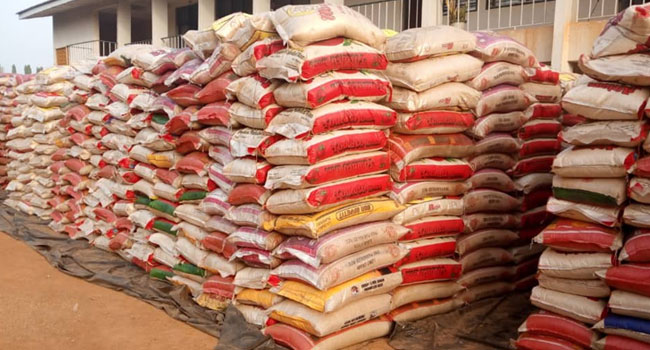Business
Import Duty Waiver for Rice to Begin Next Week, Says FG

Import duty waivers on rice and other products will start next week, according to the FG’s recent announcement.
On Tuesday, the Federal Government announced that next week marks the beginning of guidelines for suspending customs duty and taxes on imported food items.
As a means of addressing the surging food inflation across the nation, in July, the Federal Government sanctioned an exemption from duties for 150 days to facilitate importing husked brown rice, wheat and maize.
The implementation of the Presidential Accelerated and Stabilisation Advancement Plan formed the basis of this initiative.
Once the guidelines are prepared, the Comptroller-General of Customs, Bashir Adeniyi revealed on Tuesday at a meeting of security agency heads in Abuja that the policy would be put into operation.
The reason for the implementation delay of the policy, as he clarified later on, was to take into account and give due consideration to all stakeholders’ interests which include farmers.
Nigerians were urged by the head of Customs to exhibit patience and it was further stated that certain imported goods already present in the country would be exempt from duty or taxes.
The challenge, according to Adeniyi, involves finding a middle ground between the long-term benefits of Nigerian farmers and stakeholders engaged in producing these goods versus the short-term concern around food inflation.
The Ministry of Finance is currently developing the guidelines, and I guarantee that they will be prepared within a week. The Nigerian Customs department will act in accordance with these specific fiscal measures. Therefore, I implore Nigerians to remain patient as we endeavor to exempt some goods already imported from customs duties and taxes upon clearance at our shores.
Adeniyi was optimistic that the temporary lifting of duties and taxes on imported food products would decrease the cost of food.
According to him, the service was committed to carrying out the policy in accordance with the government’s directives.
Our belief is that the implementation of this policy will result in a reduction of food prices in the market. The Nigerian Customs assures its commitment to executing this fiscal policy as directed by the government.
“What are the implications of this intervention on local markets, considering all stakeholders’ interests? It should be noted that Nigerian farmers also cultivate those crops which will benefit from duty waivers and concessions.”
According to Adeniyi, the government has been striving towards ending hunger as it was the focal point of the protests.
“One of the themes driving the ongoing protest is putting an end to hunger,” he said.
It is my desire to inform Nigerians that a combination of government fiscal policies and strategic interventions from various ministries, departments, and agencies have been implemented to tackle the issues related to this situation.
I remember that strategic food items were distributed from the national grain reserves to all states of the federation about a month ago. It’s noteworthy that many food products consumed in Nigeria are imported, with most components being non-domestic and not readily available for purchase on shelves.
“It requires a considerable amount of time for completion. Therefore, the President has taken measures to alleviate the impact of cost inflation by temporarily exempting imported food items from customs duty and taxes.”
